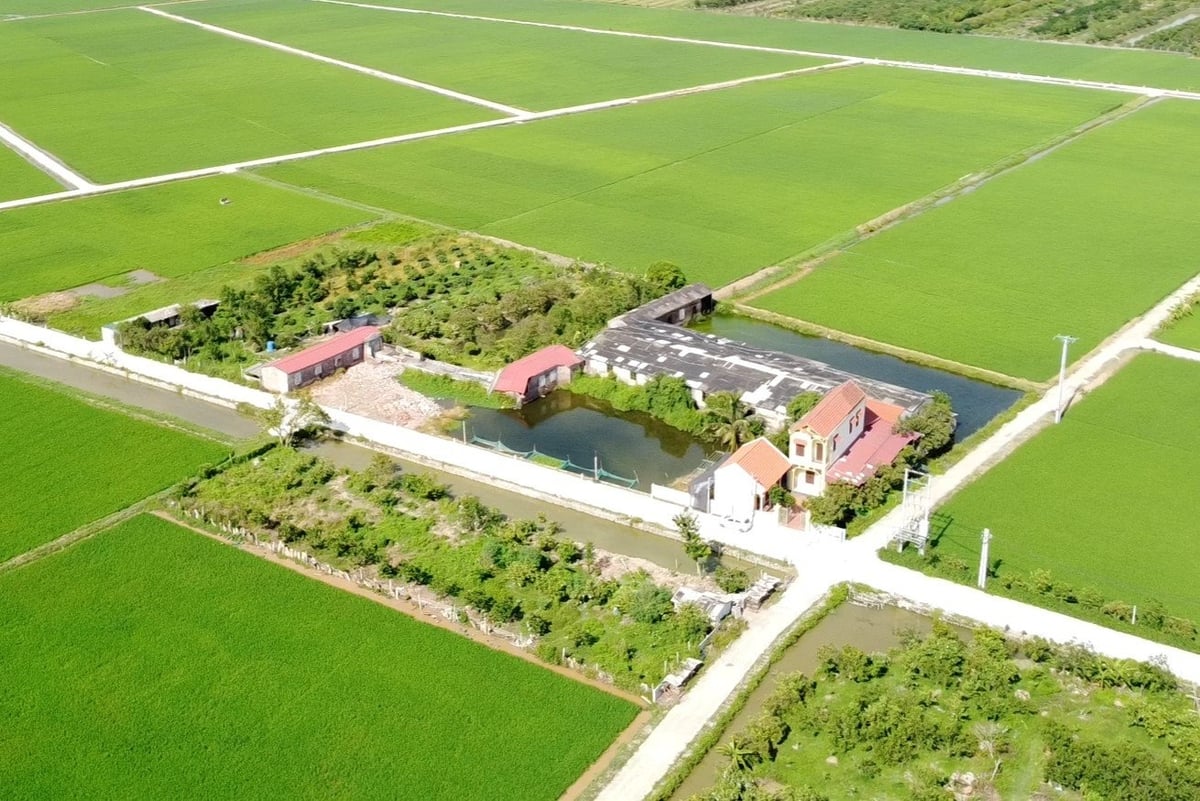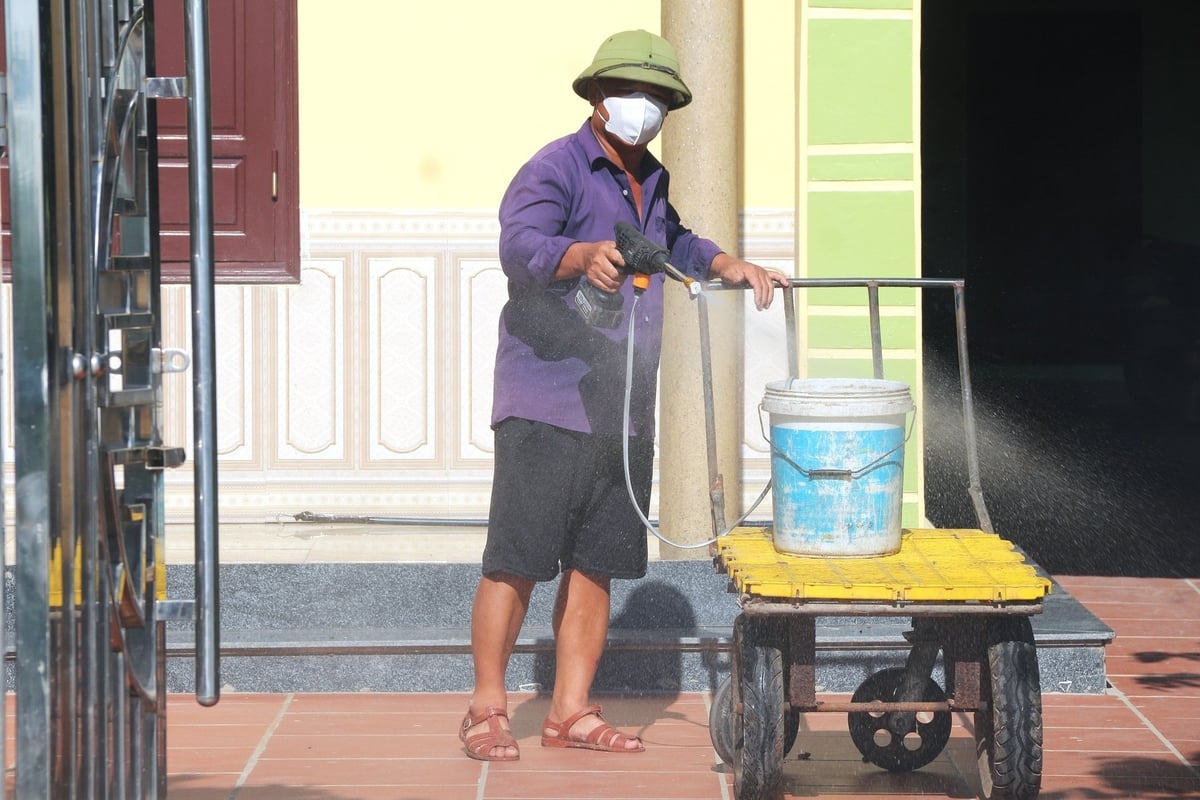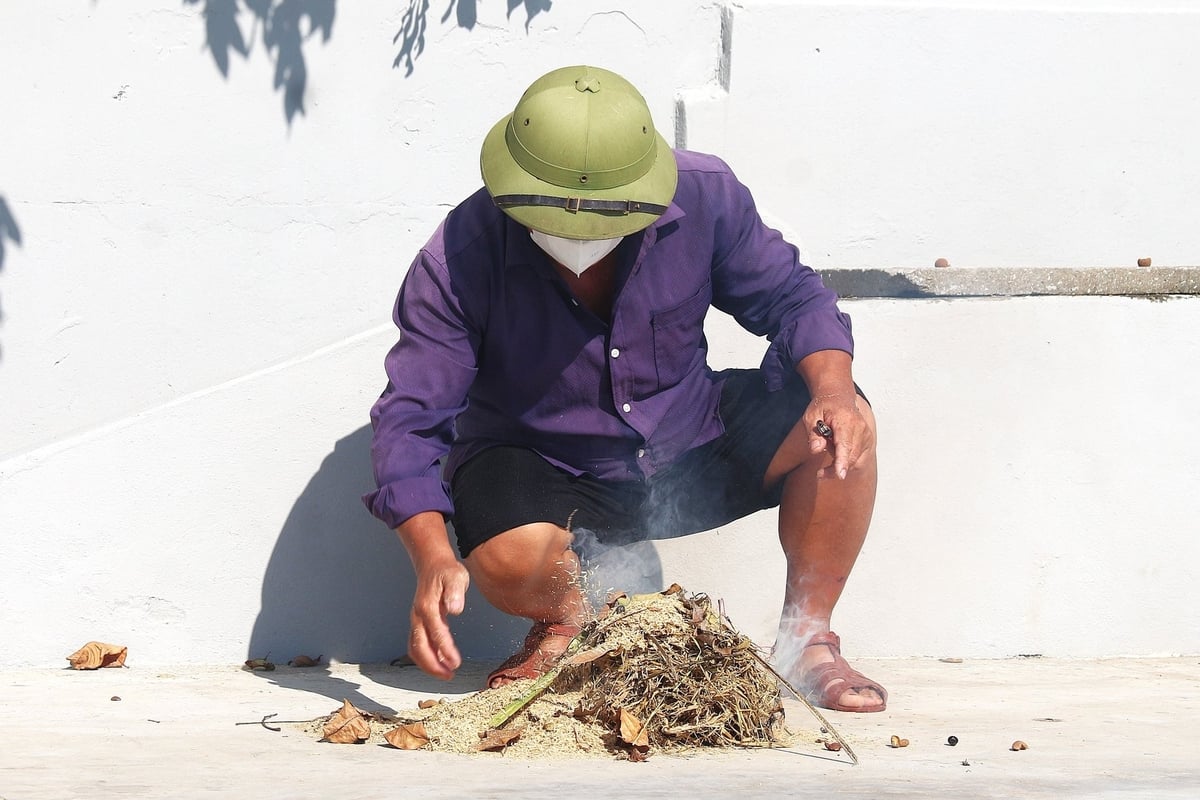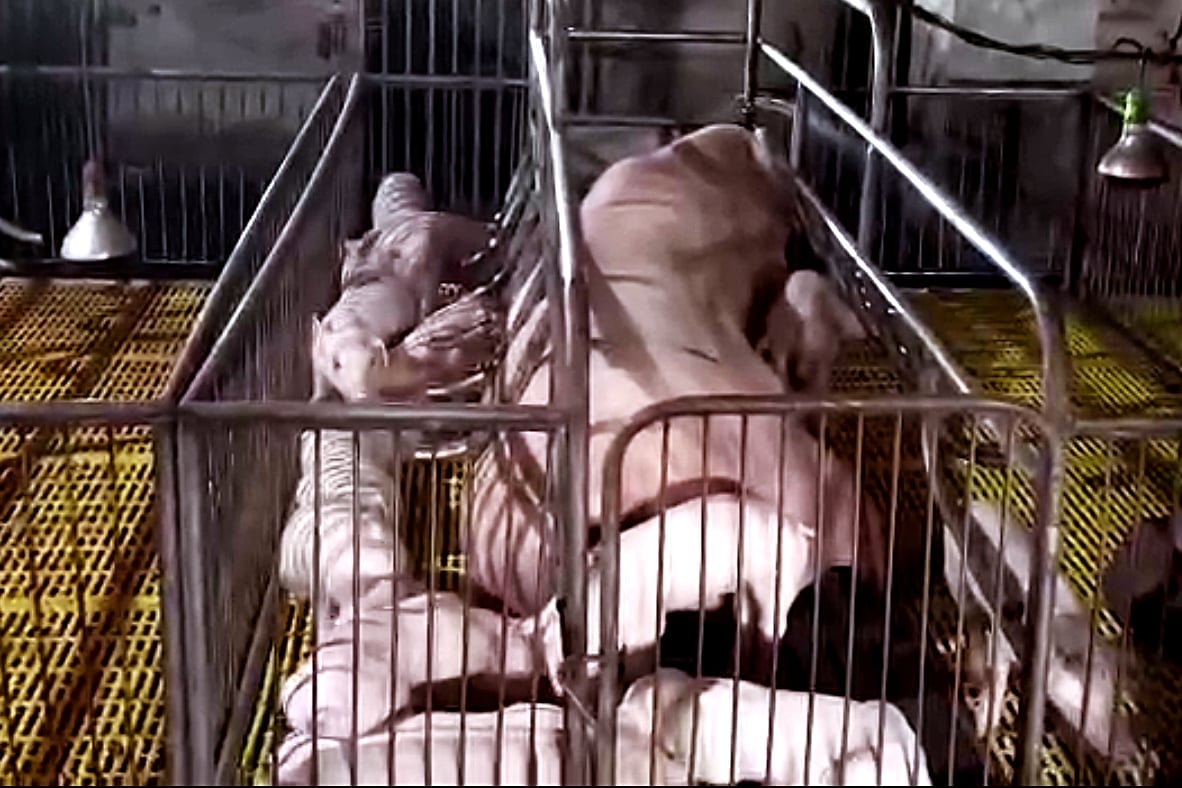November 7, 2025 | 11:39 GMT +7
November 7, 2025 | 11:39 GMT +7
Hotline: 0913.378.918
November 7, 2025 | 11:39 GMT +7
Hotline: 0913.378.918
During February 2019, the entire livestock and veterinary industry in Hung Yen was shaken when the first case of African swine fever in the country was recorded there. The dangerous disease was not contagious to humans, but it devastated pig herds, which are the livelihood of tens of thousands of farming households.
In a short time, the epidemic spread like a hurricane, sweeping tens of thousands of pigs into burial pits, leaving abandoned farms. In a province where pig farming is a strong industry, the shock was like a knife cutting through the production chain. The price of live pigs fell freely, at times only 25,000 VND/kg, not enough to cover the cost of feed.

Nguyen Thanh Luan's "fortress", which he uses to protect pigs from disease. Photo: Thanh Thuy.
Time flies like a blink of an eye, and 6 years have passed. The current livestock farmers of Hung Yen are very different from before. If it were the past, they would have still been panicked and bewildered by the shock caused by the epidemic. Now they are more experienced, calm, and steadfast. The long-standing pig raising tradition, combined with the experience from the days of loss, has helped farmers "pocket" lessons that cannot be bought with money to keep their livestock safe. Nguyen Thanh Luan in Cam La village (Nguyen Trai commune) is one of those people.
After more than 20 years in the profession, he still maintains the habit of calling his pig herd his “legacy”. His farm currently has more than 100 sows, all of good breed, with clear inspection certificates. With a total worth of nearly VND 2 billion, his pig farm is considered a massive fortune among farmers in this area.

Luan sprays disinfectant around the barn area. Photo: Pham Hieu.
Luan thoroughly cleans the barns every day, leaving no leftover bran or feed, because if rats or insects find it, they will also attract disease. He also has a weekly disinfectant spraying session. Every time he comes home from the market or somewhere else, he has the habit of burning straw, then smoking, warming his hands, feet, and his whole body. Only after the procedure would he enter the house, a rustic but effective method.
“From 2019 until now, my pigs have never been infected with African swine fever. I have not received any epidemic support. My pigs have not been infected with the disease, so why would I receive support?” he said, with a bright smile. It was not only a sign of pride but also a testament to the belief that caution and discipline in disease prevention are the key to protecting one’s fortune.
Sharing his experience in effective pig farming, Luan said, “Only one person should take care of the herd of pigs because only that person can fully grasp the habits of each pig. When feeding, you will immediately know which pig eats well and which does not, or which pig shows signs of illness, so that you can promptly separate the herd and deal with it early.”

Each time after going out, Luan burns straw and disinfects his hands and feet with smoke. Photo: Pham Hieu.
When she went to Nguyen Thanh Luan’s house, who had the largest sow herd in the commune, to report that African swine fever had appeared in the neighboring commune, Nguyen Thi Hiep, an official of the commune’s Economic Office, only stood outside the iron gate and gave a few instructions before hurriedly leaving. That hesitation showed the level of danger of the disease lurking in every barn.
African swine fever spread rapidly at that time, and there was no vaccine for sows, which already had weak resistance. Any mistake would wipe out the entire herd. As soon as the epidemic appeared in the province, Nguyen Trai commune immediately developed a plan and disseminated information to each village and household.
For farmers, pigs were still a big asset. In Nguyen Trai commune, apart from a few farms with hundreds of pigs like Luan’s, most were still small-scale households, so the commune had to tighten up every step, from creating statistics for the pig herds to sending vaccination and disinfection instructions down to all villages.

“Every house and every barn must consider itself a fortress. Outsiders should not enter or exit, and barns must be regularly disinfected,” said Nguyen Thi Hiep. Photo: Pham Hieu.
As of early August 2025, Nguyen Trai commune receives good news as no cases of African swine fever have been detected, but local farmers remain vigilant. "Keeping a healthy pig herd at this time is like keeping 'gold' in the house, just a little bit of negligence and you will lose everything,” said Luan.
According to statistics, Nguyen Trai commune currently has more than 8,500 pigs. The sow herd has more than 1,300 heads, the meat pig herd accounts for the largest number with nearly 5,700 heads, plus 19 boars and over 1,400 piglets following their mothers. The majority of households still raise pigs on a small scale, but thanks to this traditional approach, farmers have accumulated ample experience to come up with responses and protect their pigs from disease.
Translated by Samuel Pham

(VAN) A wood pellet factory has been supporting forest growers certified under FSC standards to improve their income and promote sustainable forest protection.

(VAN) Associate Professor Dr. Pham Anh Tuan emphasized that clearly identifying target groups, production scale, and consumer markets is key to ensuring the sustainable development of Viet Nam’s coconut industry.

(VAN) More than 400 experts from domestic and international organizations attended the ACT Con 2025 conference, which aimed to connect technology developers with frontline conservation teams.

(VAN) Food irradiation technology is an innovative solution that extends shelf life and acts as a ‘golden visa’ enabling Vietnamese agricultural products to access the world’s most demanding markets.

(VAN) At Dinh My commune (An Giang province), Loc Troi Group recently organized Mini Expo 2025 under the theme ‘From technology to practice – Comprehensive cultivation solutions for crops.’
/2025/11/04/2510-4-162016_246.jpg)
(VAN) The launch of the 'Carbon for Good' project in Lai Chau opens up a new direction in forest management and protection, laying the foundation for developing carbon credits.

(VAN) Hai Phong is implementing a comprehensive greenhouse gas inventory program, promoting sustainable and eco-friendly development.